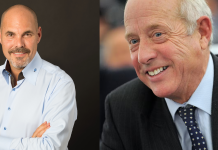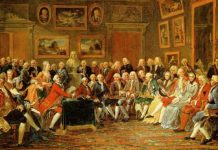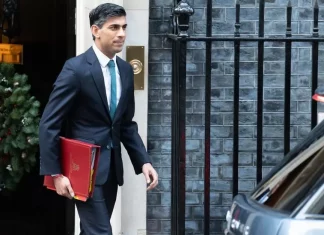Having had a sneak preview of consulting barrister Benjamin Wrench’s paper on the concept of risk reward, a concept that built the City of London into the world’s most important centre for financial services it might be amusing to take a light hearted look at the differences in corporate culture across the globe.
I have worked in mainland Europe, the City, Hong Kong and visited the United States regularly. Business trips have included many other corners of the world over the last 40 years. I do not make these observations in anything other than the spirit of whimsy, they are just based on my own experiences. They are, however, not necessarily unimportant.
Lloyds of London
In 1967 I started in the City of London as a fresh faced trainee broker at Lloyds of London. As most of us know Lloyds started as a coffee house over three hundred years ago where shipping risks were traded by the underwriters of the day, it is now a global institution of epic proportion. Tradition abounds which may seem quaint to the outsider but tradition is the bedrock of the business. The Lloyds ethos is built on Uberrima Fides (utmost good faith). Not every nuance of an insurance risk can be written down it has to transacted between a broker and an underwriter on a handshake. Non disclosure is a breach of contract of course but insurance is still very much a matter of subjective judgement, which is why experience counts for much and senior staff are usually older than other City professions. It still matters who you are in the City. This is sometimes regarded by outsiders as snobbery but that is an oversimplification, if you have to trust a chap it is not unreasonable to know a little about him. So if he went to the same school as you, served in the same regiment or his family is known to yours it is a big commercial plus. In 1967 all this was far more important than it is now with the City becoming more regulated but events in recent years suggests this has not been for the common good
Hong Kong and America
In Hong Kong there is a significantly stronger laissez faire capitalist approach. Business is transacted often without a lawyer at everyone’s elbow, the Chinese fear loss of face much more than a law suit. This more flexible freewheeling approach has given Hong Kong faster post war growth than anywhere else on the planet. Yet they do not have nor until very recently have they sought democracy, money is the religion, all they require of government is to keep out of the way and maintain the peace.
My experience of the United States is that it is more gung ho. Quick to hire, quick to fire. The typical CEO has a year to make his mark on the stock price, in London that would be two or three, the Far East five. The work ethic is strong, the nineteenth century immigrant culture runs deep, two weeks annual holiday is plenty, respect for other cultures is zero. Only the old American automobile industry could set up an export drive not knowing the Japanese drive on the left, that Friday is the Arab Sunday and asking a Frenchman to work through lunch is worse than stealing his car.
If you make an appointment with a Brit or American at 9.00am that is exactly when they will turn up. A Frenchman thinks 9.00am means any time up until 9.30am.
A business appointment in Delhi you will likely be greeted effusively at 9.00am sharp but on the following day. In Ireland they will have forgotten why you came at all but insist on buying lunch.
France is not alone in hanging on to the highly civilised idea of luncheon. In Hong Kong no matter that the pace of life is fast they stop for lunch, and a good one, unlike Parisians they stay later to make up for it. The Americans will buy an old City Institution for its contacts and tradition adopt a dress down Friday policy, sack people over the tannoy, cancel the lunch hour expect staff not too take their full leave allocation and be surprised a year later everyone’s left.
Social meets business
In Hong Kong and Japan the presentation of a business card and the order in which you get into a lift is a matter of strict protocol. Interrupting a Swede mid sentence is the height of rudeness, using a mobile telephone on a Japanese train can cause a riot, in Italy if you don’t chatter on it all through lunch your guest will imagine you have no friends.
For a real eye opener take your mother to a lunch with a Japanese businessman and order soup. Hilarious.
Hierarchy is an interesting phenomenon, in England rank is left in the pub car park, everyone’s opinion is as worthy (or unworthy) as everyone else’s, a barrister will be contradicted by a window cleaner no offence is usually taken . In France it is likely different ranks will drink in different bars. In America the price tags in bars and restaurants sort the wheat from the chaff. In China and Japan age is associated with hierarchy, being old is not the disadvantage perceived in the west.
Restaurants and bars sometimes reflect money, Sweetings the London fish restaurant is an expensive watering hole but by far the most popular establishment is the pub, unique in the world still. In the The City George and Vulture still thrives, steak and kidney pudding is still on the menu as it was in the days of Charles Dickens where it and many other old pubs are mentioned and as popular today and with the same sort of people. Indeed City pubs are worth an article on their own.
A Spanish businessman will enjoy his lunch but not resurface until the cocktail hour, pretty relaxed. By the way, don’t try and get into Lloyds of London even now as a visitor without a collar and tie.
The social attitude to money is also fascinating. An American will ask you what make as soon as you tell him what you do for a living, a Brit would consider that an appalling breach of etiquette. A Chinese would not consider it a topic for discussion at all. A Frenchman would be terrified if he even whispered his income a taxman might be sitting at the next table.
Business cultures take years to change even in the global corporate machine, the great secret is to work with them, moreover they can be fun.






